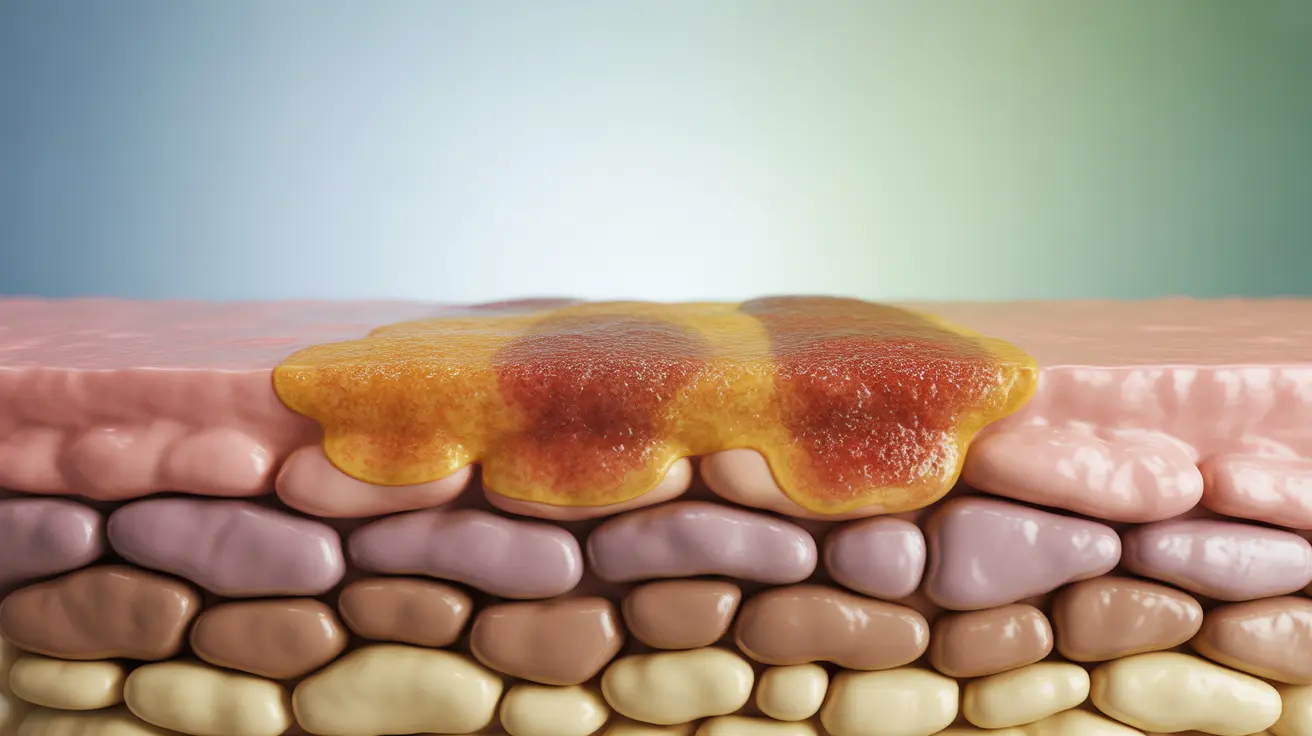When acne heals, it sometimes leaves behind dark spots or marks that can be concerning and frustrating. These post-inflammatory marks occur when a pimple triggers increased melanin production in the skin, resulting in what appears to be a black or dark spot. Understanding why these spots form and how to treat them effectively is crucial for maintaining clear, even-toned skin.
While these dark spots are generally harmless, they can impact self-confidence and may take weeks or months to fade naturally. The good news is that there are various treatment options and preventive measures available to help address and avoid these post-acne marks.
Understanding Why Pimples Turn Black
When a pimple heals, the inflammation triggers the skin's natural defense mechanisms. This process can stimulate melanocytes, the cells responsible for producing melanin (skin pigment), leading to increased pigmentation in the affected area. This response is particularly common in people with darker skin tones, though it can affect anyone.
It's important to note that these dark spots are different from acne scars. While dark spots (post-inflammatory hyperpigmentation) affect only the skin's color, true acne scars involve changes in skin texture and depth.
Effective Home Remedies for Dark Spots
Several natural ingredients can help fade post-acne dark spots:
- Vitamin C-rich ingredients (lemon juice, orange peel)
- Aloe vera gel
- Apple cider vinegar
- Green tea extract
- Turmeric paste
These ingredients work through various mechanisms, including gentle exfoliation, antioxidant protection, and melanin-inhibiting properties. However, it's essential to use these remedies consistently and patiently, as results typically develop over several weeks.
Prevention Strategies
Preventing dark spots is often easier than treating them. Here are key preventive measures:
- Avoid picking or squeezing pimples
- Use gentle, non-irritating skincare products
- Keep skin moisturized
- Apply broad-spectrum sunscreen daily
- Treat acne promptly to prevent inflammation
Professional and Over-the-Counter Treatments
For faster and more dramatic results, consider these treatment options:
Over-the-Counter Solutions
- Vitamin C serums
- Niacinamide products
- Alpha arbutin
- Kojic acid
- Chemical exfoliants (AHA/BHA)
Professional Treatments
For stubborn dark spots, professional treatments may be necessary:
- Chemical peels
- Microdermabrasion
- Laser therapy
- Professional-grade brightening treatments
- Prescription-strength topical medications
The Critical Role of Sun Protection
Sunscreen is perhaps the most crucial element in treating and preventing dark spots. UV exposure can darken existing spots and create new ones. Use a broad-spectrum sunscreen with at least SPF 30 daily, even on cloudy days or when indoors.
Frequently Asked Questions
Why does a pimple turn black and how is it different from a scar?
A pimple turns black due to post-inflammatory hyperpigmentation, where inflammation triggers increased melanin production. Unlike scars, which involve textural changes in the skin, these dark spots only affect skin color and are typically temporary.
What are the best home remedies to fade a black spot left after a pimple?
Effective home remedies include vitamin C-rich ingredients, aloe vera, green tea extract, and turmeric paste. These natural ingredients help fade dark spots through their antioxidant and skin-brightening properties.
How can I prevent dark spots from forming after pimples?
Prevent dark spots by avoiding picking at pimples, using gentle skincare products, keeping skin moisturized, applying sunscreen daily, and treating acne promptly to minimize inflammation.
What over-the-counter and professional treatments help remove pimples that have turned black?
OTC treatments include vitamin C serums, niacinamide, and chemical exfoliants. Professional options include chemical peels, microdermabrasion, and laser therapy for more stubborn cases.
How important is sunscreen in managing and preventing dark spots after pimples?
Sunscreen is crucial in managing and preventing dark spots. UV exposure can worsen existing hyperpigmentation and trigger new dark spots. Daily use of broad-spectrum SPF 30 or higher is essential for effective treatment and prevention.




